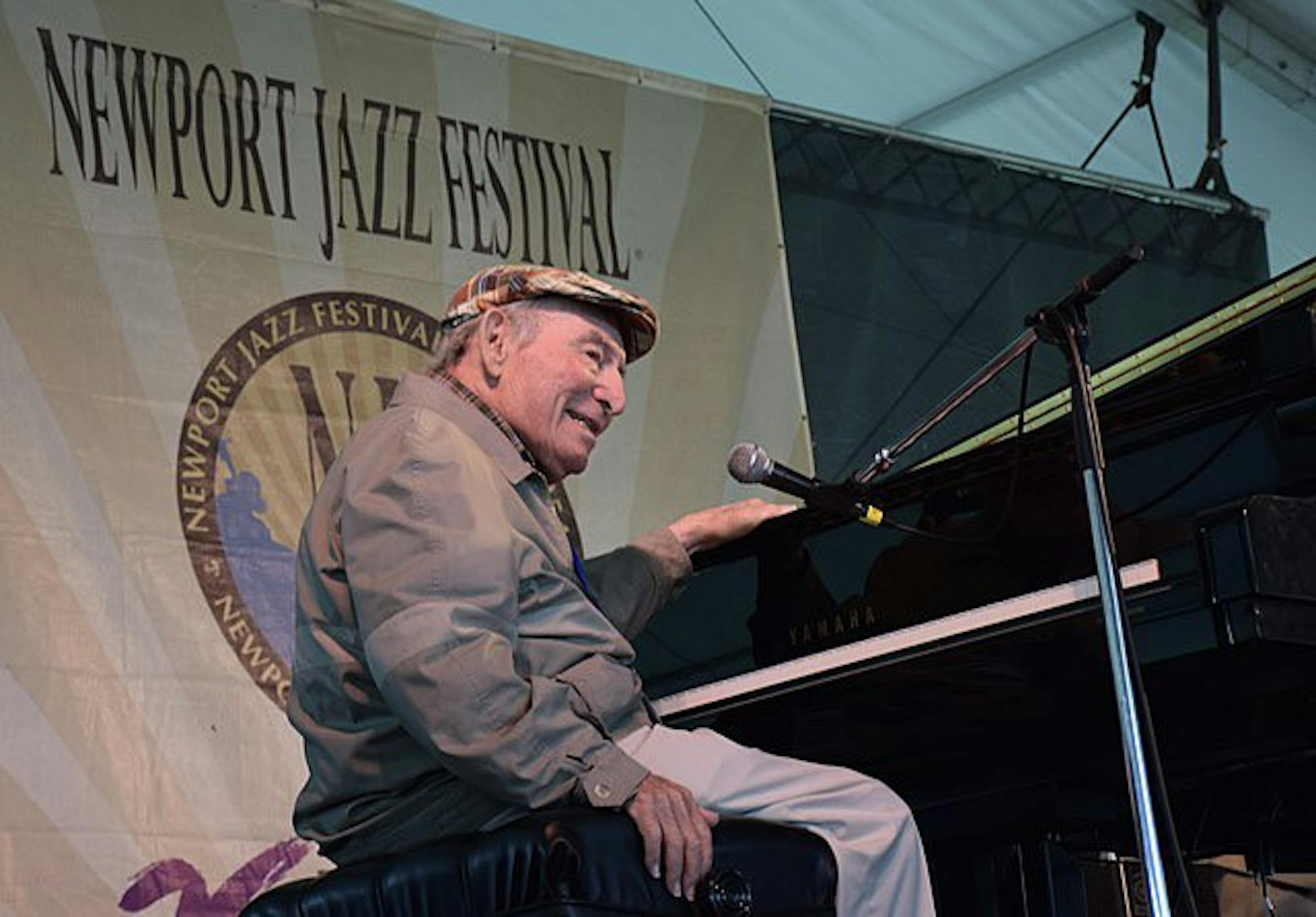George Wein, who launched the Newport Jazz Festival, died on Monday, Sept. 13 at the age of 95. News of his death resonated throughout the jazz world, with many musicians and institutions offering words commemorating his life and legacy. Jazz at Lincoln Center praised Wein’s vision for the jazz festival in a statement, writing that he "presented the most comprehensive cross-sections of great artists from all generations in an imaginative and unprecedented variety.”Pianist Jon Batiste spoke lovingly about Wein's personal influence on him, and said that all music festivals owe something to Wein.
Wein grew up in a Jewish family in Newton, Mass.He had an early enthusiasm for jazz, leading his own bands and frequenting venues. He made his first big step into the jazz world when he founded the Storyville jazz club and record label. Jazz greats like saxophonists Sidney Bechet and Lee Konitz recorded on the Storyville label, and the club featured performances from luminaries like vocalist Sarah Vaughan and saxophonist Charlie Parker. Already apparent in these early ventures was Wein’s interest in all facets and styles of jazz, the characteristic that made his festival so successful.
Building off the success of Storyville, Wein presented the first Newport Jazz Festival in 1954. Elaine Lorillard, a wealthy Newport resident, approached Wein with the idea of hosting a jazz festival in Newport, and she and her husband offered $20,000twenty-thousand dollars in support. Although Wein did not invent the concept of the jazz festival, his attempt displayed much more ambition than previous festivals.
The inaugural festival took place outdoors on the grounds of the Newport Casino, and featured a lineup of stars that included Ella Fitzgerald, Dizzy Gillespie,Oscar Peterson and Billie Holiday.Thousands of attendees flocked to the festival, and the tremendous success warranted a return the following year. The festival also provided a template for running an outdoor music festival on a large scale.
Only a matter of years after its inception, the Newport Jazz Festival had become an influential part of the jazz world. Miles Davis' playing at the 1955 Newport Jazz Festival led to his signing to Columbia Records. At the 1956 Festival, an inspiring performance from Duke Ellington’s orchestra (captured on the album “Ellington at Newport”(1956)) revitalized Ellington’s career.Wein described the concert as “the greatest performance of Ellington’s career,” and many critics rank it among the best jazz performances ever recorded. In 1958,photographer Bert Stern captured the festival on film, turning the footage into the documentary “Jazz on a Summer’s Day” (1959), which became one of the most celebrated jazz films of all time.
As Wein’s first festival earned a reputation as the largest and most significant event on the jazz calendar, his influence as a promoter grew. He produced festivals in New Orleans, and overseas in places like Paris, Seoul and Warsaw. The model set by Wein’s Newport Jazz Festival also inspired jazz festivals like the Monterey Jazz Festival, founded in 1958.
Though the Newport Jazz Festival helped grow the audience of jazz and influenced the careers of many jazz legends, the festival’s nearly 70-year-long run has not been without controversy. Even as early as 1958, critics lambasted Wein for including non-jazz acts like Chuck Berry and Ray Charles. This criticism did not have much sway on Wein’s programming, and recent festivals have featured acts like rapper Common and gospel singerMavis Staples.
In 1960, Charles Mingus and Max Roach staged a rival festival in Newport. That same year, hordes of drunk people who could not get tickets to Wein’s festival rioted throughout Newport. As a result of the riots, Wein was barred from hosting the festival in 1961, though he returned the following year. More interruptions occurred in 1971, when gate-crashers disrupted the festival. Wein consequently moved the festival to New York, returning to Newport in 1981.
George Wein’s immense contributions to the jazz world have earned him numerous accolades. In 2005, he received the distinction of being named a National Endowment for the Arts Jazz Master, and former presidents Jimmy Carter and Bill Clinton recognized his contribution to the arts. Even after formally giving up his role as the festival’s producer, he remained an important figure at the festival. At the most recent festival in 2021, Wein, though not there in person, introduced Mavis Staples and Andra Day remotely. Wein’s legacy will continue to live on through the Newport Jazz Festival and music festivals around the world.






